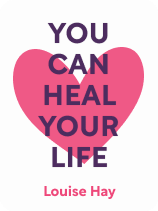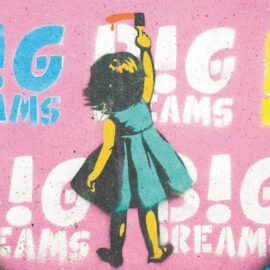

This article is an excerpt from the Shortform book guide to "You Can Heal Your Life" by Louise Hay. Shortform has the world's best summaries and analyses of books you should be reading.
Like this article? Sign up for a free trial here.
What exactly is meant by self-love? Why do so many people struggle to love themselves as they are?
When you love yourself, you feel worthy the way you are and put your happiness and well-being first. However, practicing self-love is difficult for many people because our culture encourages perfectionism, which in turn, breeds self-criticism—the polar opposite of self-love.
Here’s why it’s so important to show yourself a little love now and then.
Love Yourself—Changing Self-Hatred to Self-Acceptance
According to Louise Hay, the author of You Can Heal Your Life, practicing self-love is the answer to every problem. Self-love does not mean narcissism or having a big ego. It means believing you’re valuable just as you are.
Hay says that everyone she’s ever known has felt some amount of self-hatred or guilt. Everyone feels that they’re not good enough. Why? Hay claims it’s because of the negative beliefs we pick up from adults when we are children. One way to identify and dismantle these beliefs is to make a list of everything your parents (and all the other adults in your life) said was wrong with you. You could also list all the things people told you that you should or shouldn’t do, like becoming a doctor or lawyer, or being less bossy. Next, consider the extent to which your own beliefs about yourself echo those negative or prescriptive beliefs instilled in you by your parents. Armed with this knowledge, you can recognize when the familiar negative self-beliefs creep in and use your affirmations instead.
In order to transform your self-hatred and self-criticism into self-love, Hay instructs that you must never criticize yourself for anything. You need to love and approve of yourself exactly as you are, flaws and all. (Shortform note: Because Hay advocates using affirmations to change problem behaviors, we can infer here that she’s not implying that flaws should go unchanged, just that they should go uncriticized. She would likely advise you to approach them with positive phrasing, as with the affirmations.)
If you don’t believe you deserve good things, you’ll never get them, says Hay. You can use mirror work to learn to feel that you deserve positive experiences. Look in the mirror and tell yourself that you deserve to have or be whatever specific thing you desire. For example, you could say “I deserve this promotion,” or “I deserve to be treated with respect and kindness.”
Another way to begin to love yourself is to constantly tell yourself that you approve of yourself. Each time you have a negative thought about yourself, turn it into a positive affirmation. For example, if you think to yourself, “I’m so dumb, why can’t I figure this out?” look in the mirror and state, “I’m smart and curious, and I’m able to teach myself to do hard things.”
(Shortform note: Research confirms that self-compassion—treating yourself as you would treat a close friend—can make you more successful, happier, and less stressed. Self-compassion can make you more productive because it allows you to see obstacles or failures as learning opportunities, rather than as evidence that you’re not good enough or you don’t have what it takes to succeed. And just as criticizing yourself can make it harder to pick yourself up after a failure, it can also activate your fight-or-flight response, releasing more of the stress hormone cortisol. Self-compassion, on the other hand, can calm your sympathetic nervous system and decrease stress.)

———End of Preview———
Like what you just read? Read the rest of the world's best book summary and analysis of Louise Hay's "You Can Heal Your Life" at Shortform.
Here's what you'll find in our full You Can Heal Your Life summary:
- The causes and effects of negative beliefs
- How to transform your negative thoughts into positive ones
- How to solve your problems with relationships, money, work, and even illness






